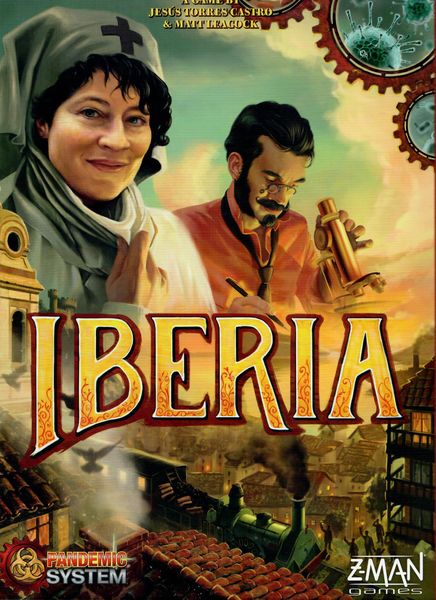Iberia (2016) Board Game
Iberia is a standalone game in the Pandemic series, designed by Jesús Torres Castro and Matt Leacock. It was released in 2016 by Z-Man Games. The game is set in the Iberian Peninsula during the mid-19th century, where players must work together to combat diseases and build railways to connect cities.
Game Components of Iberia
How To Setup Iberia
To set up the game, players start by placing the board in the middle of the playing area. The Player card deck is prepared by separating it into four to six face-down piles, depending on the desired difficulty level, and shuffling one epidemic card into each pile. Each player selects a role and receives the corresponding role card and pawn. The infection cards are then drawn to seed the board with disease cubes, with six cities initially infected. Event cards are worked into the player deck based on the number of players, and each player is dealt a starting hand.
Gameplay Mechanics and Game Objective
Player Experience
**Pandemic: Iberia** offers a more intense and strategic experience compared to the original **Pandemic**. The game requires significant planning and cooperation among players to build railroad networks, purify water, and research diseases. The historical setting and new mechanics, such as railroads and purification tokens, add a fresh layer of strategy and complexity. While some players may find it more manic and challenging, others appreciate the added depth and thematic charm.
Pros
Cons
Personal Thoughts on Iberia
**Pandemic: Iberia** is ideal for fans of the original **Pandemic** who are looking for a new challenge and additional strategic layers. It is particularly suited for experienced players who enjoy cooperative games with deep strategy and historical themes. However, it is also approachable for newer players who are willing to learn the new mechanics and are drawn to the cooperative gameplay and thematic setting.
We are supported by our audience. When you purchase through links on our site, we may earn an affiliate commission, at no extra cost for you. Learn more.

